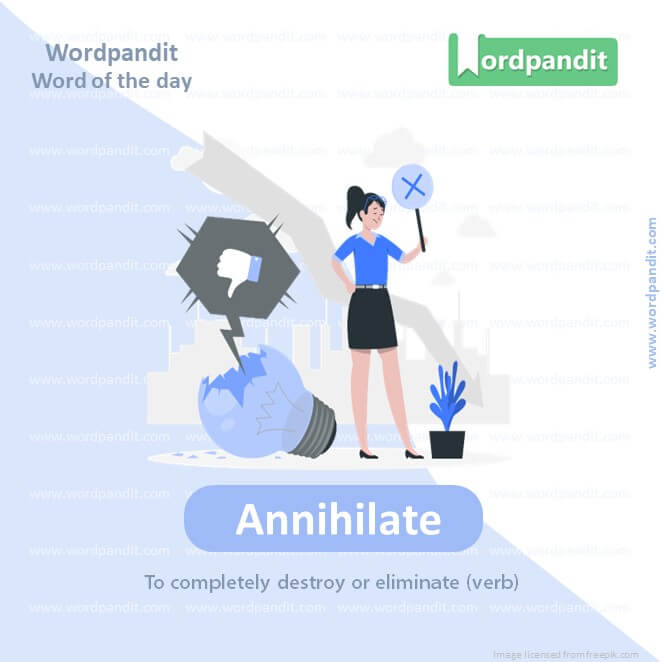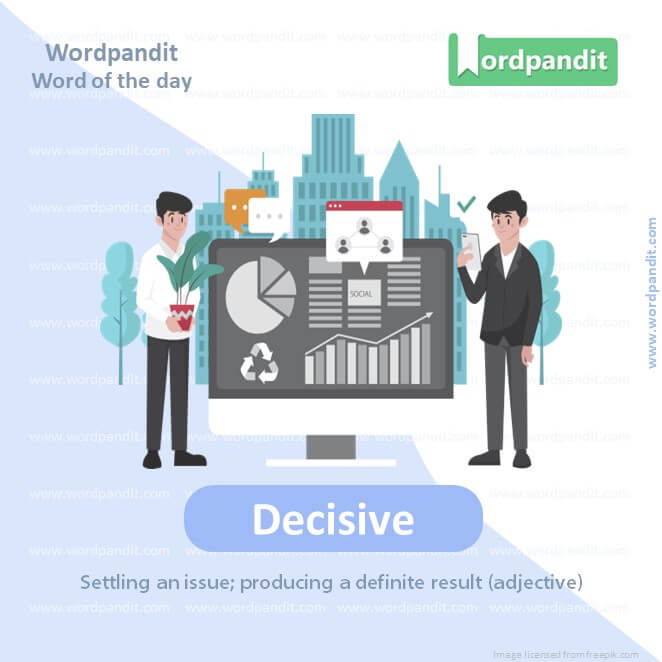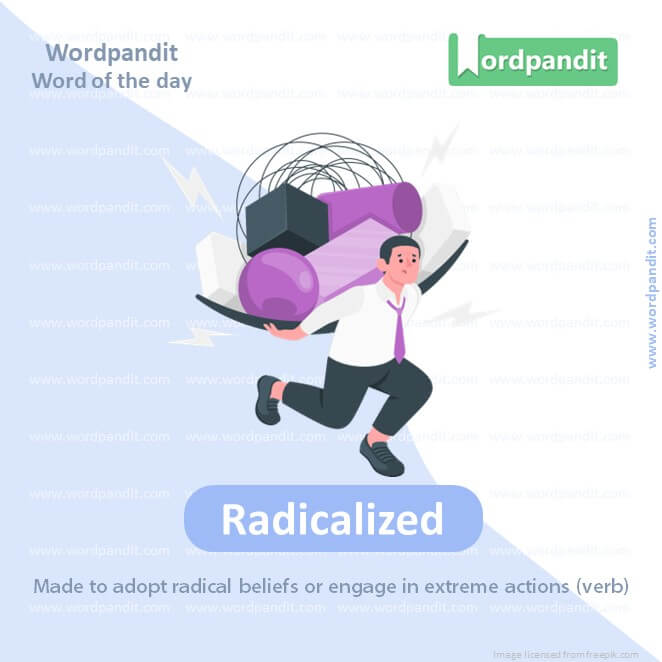Daily Vocabulary Words: List of Daily Used Words in Leading Indian Newspapers
Hi there. Welcome to this special section @ Wordpandit. Our endeavour here is straightforward: highlighting daily vocabulary words that you would come across in leading newspapers in the country. We have included the following newspapers in our selection:
• The Times of India
• The Economic Times
• Hindustan Times
• Mint
• Indian Express
We are putting in extensive work to develop your vocabulary. All you have to do is be regular with this section and check out this post daily. This is your repository of commonly used words; essentially, we are posting a list of daily used words. Hence, this has significant practical application as it teaches you words that are commonly used in leading publications mentioned above.
Visit the website daily to learn words from leading Indian newspapers.

WORD-1: Annihilate
CONTEXT: IDF spokespersons have made it clear that their mandate now is to “annihilate” not only Hamas’ military capacity but also its “capacity to govern Gaza.
SOURCE: Indian Express
EXPLANATORY PARAGRAPH: Imagine you have a sandcastle, and then a big wave comes and wipes it away completely. That’s like what “annihilate” means. It’s when something is completely destroyed or wiped out.
MEANING: To completely destroy or eliminate (verb)
PRONUNCIATION: uh-NYE-uh-late
SYNONYMS: obliterate, eradicate, destroy, exterminate, wipe out, demolish, eliminate
USAGE EXAMPLES:
1. The city was nearly annihilated during the war.
2. The company aimed to annihilate its competition.
3. The disease threatened to annihilate the entire population.
4. The coach wanted to annihilate any doubts the team had about winning.

WORD-2: Decisive
CONTEXT: Israel’s paper military superiority will not mean a decisive conflict ending with a quick peace and the absence of Hamas.
SOURCE: Indian Express
EXPLANATORY PARAGRAPH: Think about when you’re playing a game and someone makes a big move that helps them win. That big move is like being “decisive.” It’s when someone or something makes a clear choice or has a big effect on the result.
MEANING: Settling an issue; producing a definite result (adjective)
PRONUNCIATION: dee-SYE-siv
SYNONYMS: conclusive, definitive, determining, unmistakable, resolute, clear-cut, pivotal
USAGE EXAMPLES:
1. Her decisive action saved the company from bankruptcy.
2. The general played a decisive role in the victory.
3. The team’s decisive win earned them the championship.
4. He made a decisive choice to change his career.

WORD-3: Camouflage
CONTEXT: Civilians suffered endlessly as collateral damage and their deliberate use by ISIS fighters to camouflage movements.
SOURCE: Indian Express
EXPLANATORY PARAGRAPH: Imagine wearing clothes that look just like the trees and leaves in the forest, so animals can’t easily see you. That’s “camouflage.” It’s a way to hide by looking like the things around you.
MEANING: A way of hiding something by making it appear to be something else (noun); to hide by disguising appearance (verb)
PRONUNCIATION: CAM-oh-flahj
SYNONYMS: disguise, concealment, cover, mask, screen, veil
USAGE EXAMPLES:
1. Soldiers wear camouflage to blend into their surroundings.
2. The lizard’s skin acts as camouflage in the desert.
3. The spy tried to camouflage his intentions.
4. She used makeup as a camouflage for her scars.

WORD-4: Constrained
CONTEXT: Due to its geographical position and highly constrained extent, Gaza is already a very densely populated urban area.
SOURCE: Indian Express
EXPLANATORY PARAGRAPH: Imagine you want to run around and play, but there’s a fence around you keeping you in a small space. That fence is like being “constrained.” It means being limited or held back.
MEANING: Forced to follow a particular course or held back from doing something (adjective)
PRONUNCIATION: kuhn-STRAYND
SYNONYMS: restricted, limited, confined, restrained, bounded, held back
USAGE EXAMPLES:
1. He felt constrained by the rules of the game.
2. The city’s growth is constrained by the mountains.
3. Her creativity was constrained by the company’s guidelines.
4. The tight budget constrained our choices for the event.

WORD-5: Radicalized
CONTEXT: A radicalized, poor, geographically constrained population with no good options but to fight is a recipe for a bloodbath.
SOURCE: Indian Express
EXPLANATORY PARAGRAPH: Imagine someone who starts believing very strong ideas that are very different from what most people believe. And they want to make big changes based on these ideas. That’s “radicalized.” It’s when someone adopts extreme beliefs or ideas.
MEANING: Made to adopt radical beliefs or engage in extreme actions (verb)
PRONUNCIATION: RAD-i-kuh-lized
SYNONYMS: extremist, militant, fanatic, zealot, revolutionary, diehard
USAGE EXAMPLES:
1. He was radicalized by online propaganda.
2. The community was concerned about youths being radicalized.
3. They aimed to counter the radicalized narratives with education.
4. The group’s leader was suspected of radicalized views.
WORD-6: Messianic
CONTEXT: Only irresponsible politicians or the messianic even discuss such an option.
SOURCE: Times of India
EXPLANATORY PARAGRAPH: Imagine someone who really, really believes they have a special job to help or save people, like a superhero. When someone feels this strongly, we can say they have a “Messianic” feeling. It’s like thinking you’re meant to do something very important.
MEANING: Relating to a person who is believed to be a savior or chosen one (adjective)
PRONUNCIATION: mess-ee-AN-ik
SYNONYMS: savior-like, redeemer, chosen, prophetic, visionary, charismatic
USAGE EXAMPLES:
1. The leader’s messianic zeal inspired many to join his cause.
2. He had a messianic belief in his mission to end poverty.
3. People were drawn to her messianic passion for change.
4. Some worried about his messianic tendencies.
WORD-7: Shoehorned
CONTEXT: Champagne are sodding miserable while us poor folks in Y class shoehorned into our teeny weeny seats chewing a dry bread roll and some gooey pap are leaping about in ecstasy.
SOURCE: Times of India
EXPLANATORY PARAGRAPH: Imagine trying to fit a big toy into a tiny box. You push and push to make it fit even though it’s too big. That’s like “shoehorned.” It’s when something is forced into a place or situation where it doesn’t really fit.
MEANING: To force into an insufficient space or to make fit despite unsuitable conditions (verb)
PRONUNCIATION: SHOO-horned
SYNONYMS: squeeze, cram, stuff, wedge, jam, force
USAGE EXAMPLES:
1. The new character was shoehorned into the story.
2. I felt like I was being shoehorned into a role I didn’t want.
3. They shoehorned too much information into one chapter.
4. The city shoehorned the new park into a small space between buildings.
WORD-8: Fandango
CONTEXT: Are doing the fandango because you are so happy with your lot and the measly little cheque you get at the end of the month for slogging your butt off.
SOURCE: Times of India
EXPLANATORY PARAGRAPH: Think of a fun, lively dance where people move quickly with a lot of energy and rhythm. That dance is called a “fandango.” It’s a type of dance and music that’s very spirited.
MEANING: A lively Spanish dance (noun)
PRONUNCIATION: fan-DANG-go
SYNONYMS: jig, salsa, rumba, tango, samba, mazurka
USAGE EXAMPLES:
1. The couple performed a fandango at the talent show.
2. I love the energy and rhythm of the fandango.
3. The music’s beat made everyone want to dance the fandango.
4. Their fandango performance was the highlight of the night.
WORD-9: Uproariously
CONTEXT: Who wouldn’t sit because of deference to my friend and coffee was served in real china cups off a silver salver. They laughed uproariously at his feeble jokes.
SOURCE: Times of India
EXPLANATORY PARAGRAPH: Imagine something is so funny that everyone is laughing super loudly and can’t stop. When something is that funny, we can say it’s “uproariously” funny. It’s a word that means very, very funny.
MEANING: In a manner that provokes loud laughter or is very amusing (adverb)
PRONUNCIATION: up-ROAR-ee-us-lee
SYNONYMS: hysterically, boisterously, riotously, raucously, loudly, vociferously
USAGE EXAMPLES:
1. The movie was uproariously funny, and we couldn’t stop laughing.
2. She told the joke uproariously, making everyone chuckle.
3. The kids played uproariously in the park.
4. The comedian had the crowd laughing uproariously.
WORD-10: Perpetuate
CONTEXT: If the current divisive malaise is not remedied, the wave of inequity, discrimination, exploitation, and prejudice will perpetuate, and future generations will inherit a legacy of disorder and conflict.
SOURCE: Times of India
EXPLANATORY PARAGRAPH: Imagine you have a toy train that keeps going around and around without stopping. When something keeps going on and doesn’t end, like that toy train, we say it’s “perpetuated.” It means to make something continue for a long time.
MEANING: To make something continue indefinitely (verb)
PRONUNCIATION: per-PET-yoo-ate
SYNONYMS: continue, maintain, preserve, prolong, sustain, extend
USAGE EXAMPLES:
1. Old stories can perpetuate myths and legends.
2. The media sometimes helps to perpetuate stereotypes.
3. They wanted to perpetuate their family traditions.
4. The organization works hard to perpetuate the arts in the community.
Vocabulary Words
When delving into the dynamic world of languages, the grandeur of ‘vocabulary words’ is all-encompassing. The importance of ‘vocabulary words’ in effective communication cannot be overstated; it’s these words that form the backdrop of any language, painting intricate pictures of thoughts and ideas.
Starting on the journey of learning ‘vocabulary words’, one should steer clear from rote memorization. The traditional structure of merely repeating words lacks the necessary context and application that actually embeds these words into your memory. To truly master the ‘vocabulary words’, one needs an integrated, immersive approach.
The first step towards mastering ‘vocabulary words’ is to engage with varied language mediums. Expanding beyond textbooks to read fiction, articles, blogs, and other forms of content not only diversifies your vocabulary but also acts as a mirror to reflect the practical application of these words. Essentially, you’re exposed to the words as they are commonly used, allowing you to truly understand their essence.
Empowering this journey, tech tools like language learning apps and memory-enhancing flashcards significantly aid in learning ‘vocabulary words’. These interactive tools provide a more engaging learning experience and hone word retention. Mnemonic devices, associating words with a unique story or visual image, enrich the process and make memory recall more efficient.
Practicing ‘vocabulary words’ by using them in day-to-day conversations exemplifies learning by doing. It also strengthens the neural pathways and improves overall word recall. This, coupled with regular revisions, ensures your grasp over ‘vocabulary words’ remains strong.
In conclusion, learning ‘vocabulary words’ is not just about adding words to your linguistic cupboard, but understanding their essence and utilizing them effectively. An inclusive approach to learning that combines diverse reading materials, technology tools, mnemonic devices and practice can really propel your mastery over ‘vocabulary words’. Remember, language is the bloodline of communication, and ‘vocabulary words’ are its heartbeat. ‘













